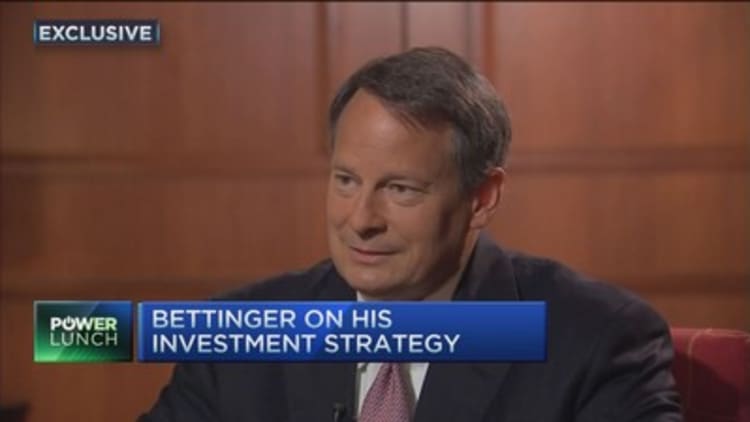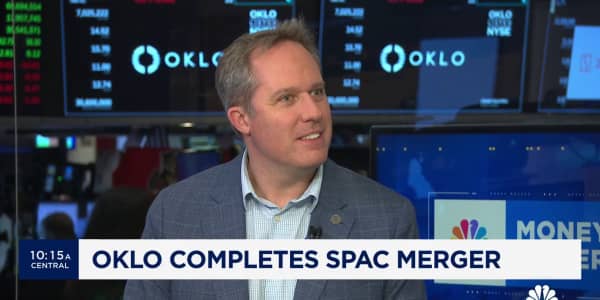A lackluster year for the stock market has turned into a strong one for active fund managers.
After a full decade of languishing well behind the benchmarks used to gauge their performance, the group has turned in a stellar performance in 2015, at least compared to historical norms.
Active managers across most classes are close to 50 percent after-fee outperformance. U.S. equity managers are beating at a 49 percent rate, more than 47 percent of all equity managers are ahead of the game, while even managers of taxable bond funds are beating at a 49 percent clip, according to data that Morningstar provided to CNBC.com this week. (Tweet this)
That's a massive change for a group that's been beaten up during this area of low volatility where aggressive central bank easing has made asset classes move up and down in unison and where stock pickers have had increasingly fewer opportunities to find assets that break away from the pack.
"You don't have a market that from an index perspective is outperforming. What we have is an increase in volatility," said Todd Schoenberber, president of LandColt Capital. "That's great on a number of levels.... If you're an active manager and you believe that stocks will do well in the second half of the year but you're trying to find an entry point, you take advantage of those selloffs."
Indeed, the , despite being within 0.6 percent of its all-time high, is up just 2.6 percent year to date, while the Dow Jones industrials are up only 2.2 percent. However, the broad market indexes have traded within a broad range, with the S&P 500 16 percent off its 52-week low.
Active managers and stock pickers look for dispersion, or the difference between sector returns, as opportunities. After years of low dispersion, this year has provided yawning gaps, with the best-performing sector, health-care, separated from the worst-performing, utilities, by 14.4 percentage points. The low-volatility environment came about while the Federal Reserve was pumping nearly $4 trillion of liquidity into the markets and keeping short-term interest rates near zero.
Actively outperforming
| Category | % outperforming YTD | % underperforming YTD | outperforming 10 years | underperforming 10 years |
|---|---|---|---|---|
| U.S. equity | 48.95 | 50.92 | 29.99 | 69.92 |
| All equity | 47.11 | 52.77 | 30.74 | 69.18 |
| Taxable bond | 48.87 | 50.91 | 33.39 | 66.36 |
| All bonds | 44.85 | 54.77 | 20.02 | 79.85 |
Source: (c) 2015 Morningstar

"You have some fairly big moves, noncorrelated moves, in things like energy that have allowed managers to outperform if they're on the right side of the trade," said Nick Colas, chief market strategist at New York brokerage Convergex.
Colas added that years of underperformance have weeded out some of the lower-quality managers in an "almost Darwinian natural selection process at work," and he believes this year's improved results could be the start of a trend.
The active-vs.-passive debate has heated up in recent years as retail investors have turned increasingly toward index funds, which track basic measures such as the S&P 500, the Dow and various sectors. Index investing provides fewer opportunities for outperformance but has seen a steady flow of returns since the end of the financial crisis.
Read MoreThe ETF craze just crossed a huge hurdle
Most passive exchange-traded funds, which offer much lower fees and higher liquidity than mostly active mutual funds, have exploded to more than $2 trillion in assets and for the first time this year have captured more retail money than mutual.
Active management has taken a terrible beating over the years, with only about 30 percent of equity managers beating benchmarks during the past decade, according to Morningstar. Bond managers have been even worse, with a beat rate of only about 20 percent. However, the percentage of bond funds beating their marks this year is at 54.8 percent.
Read MoreNew 'bond king' makes predictions on yields, Fed
The results have been skewed toward value funds, some of which have a nearly 80 percent beat rate, according to Credit Suisse.
"Active managers are now smart enough to realize the Fed is not going to make a move on monetary policy this year," Schoenberger said. "If you do have a significant selloff where there is a discount involved, it's a great time to pick any brand-name stock."






